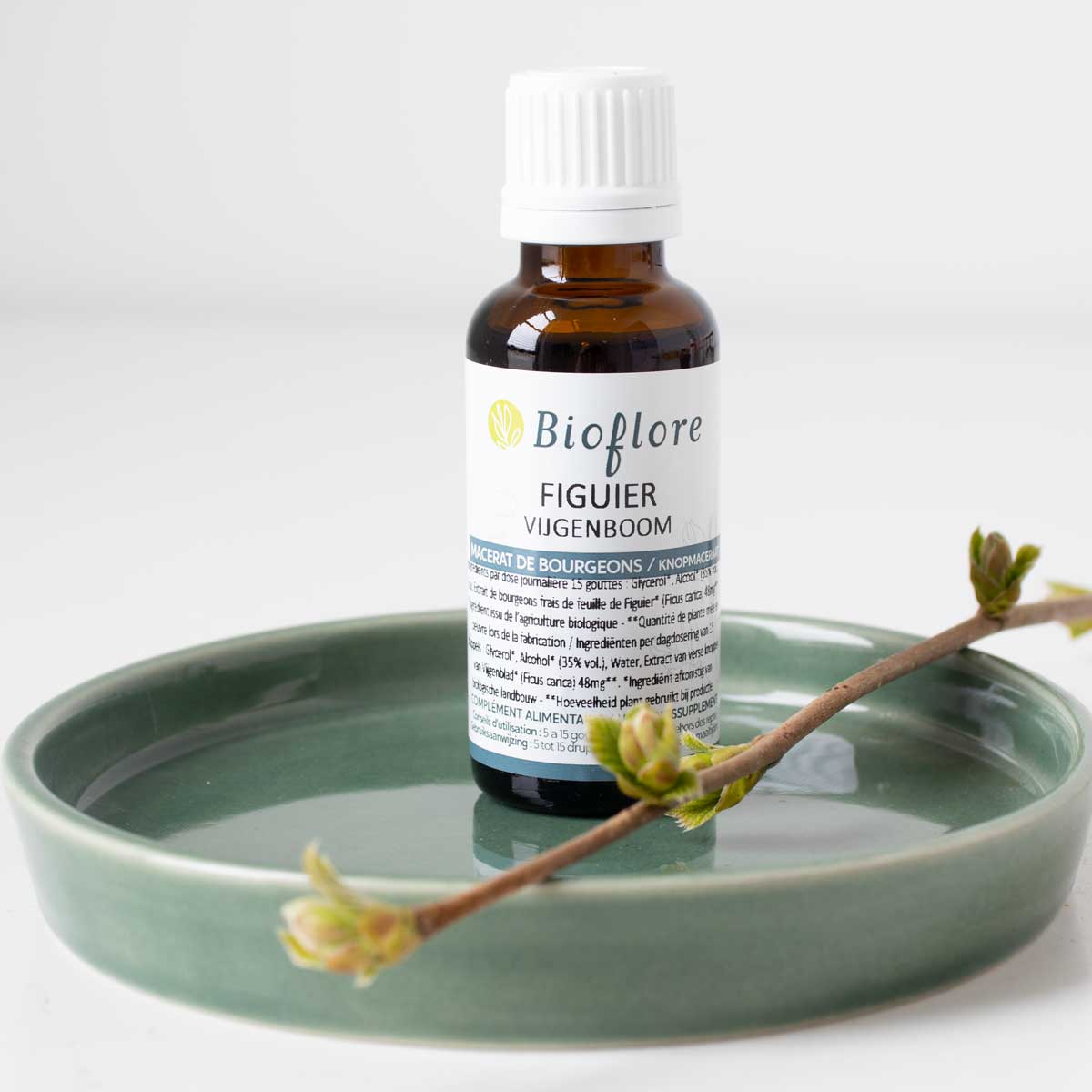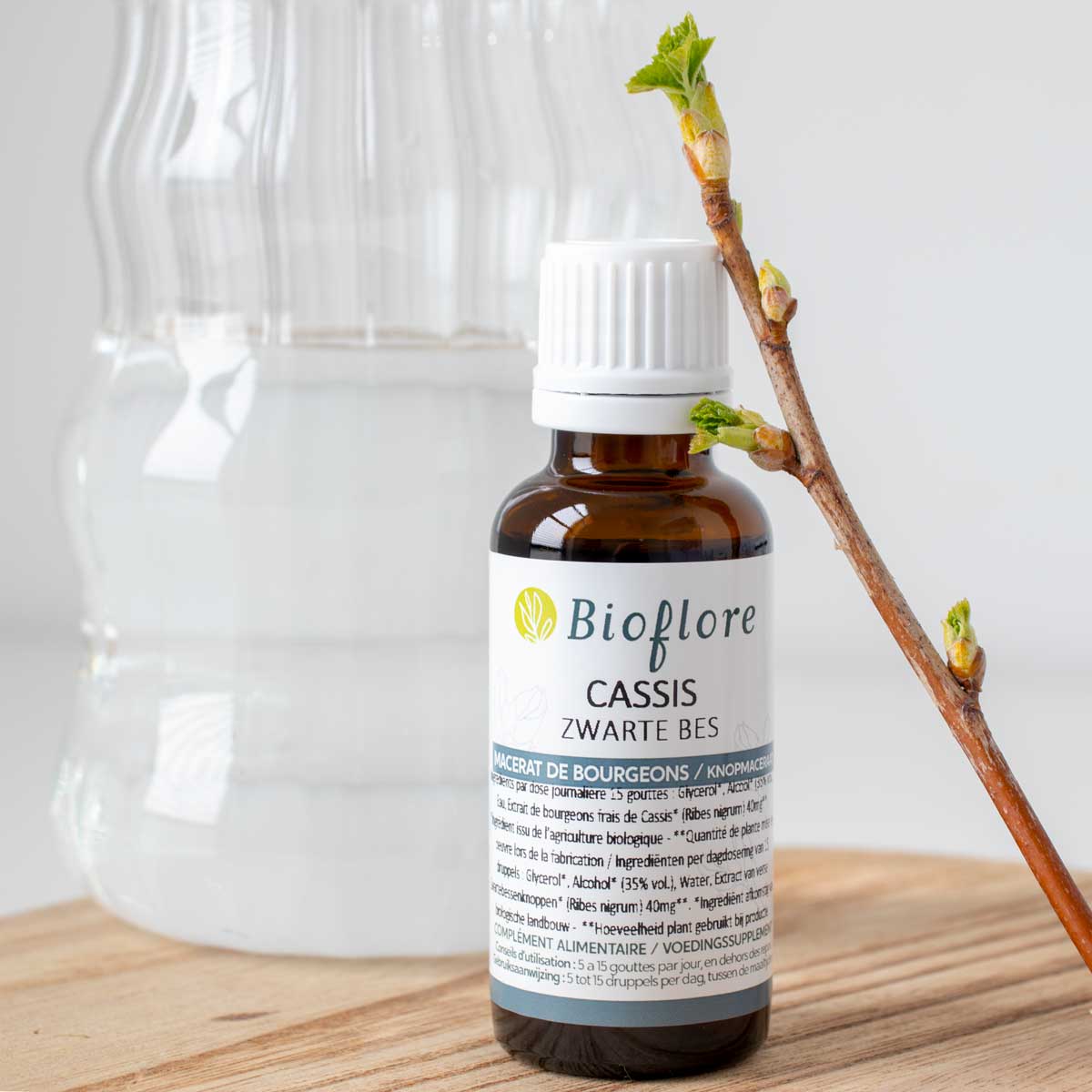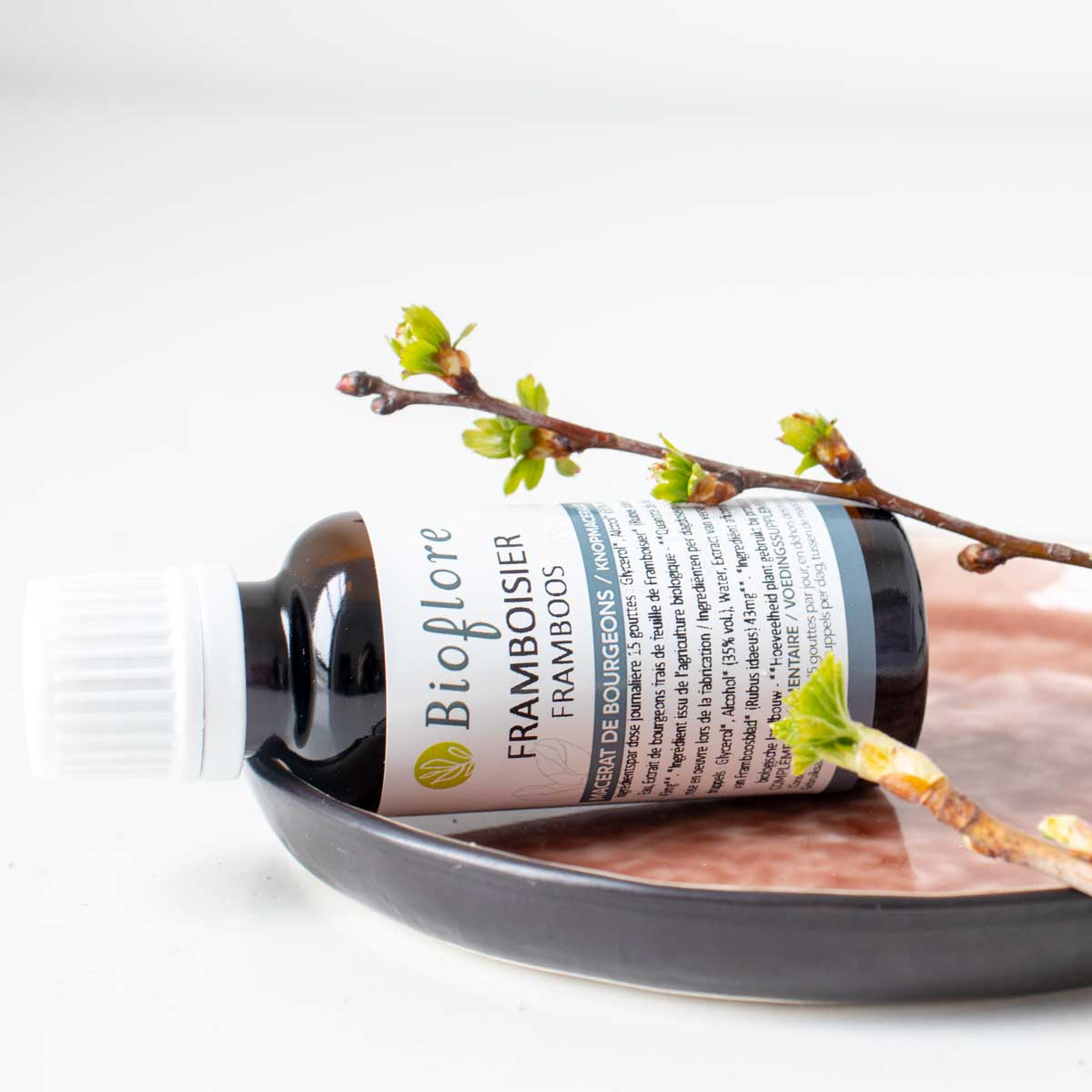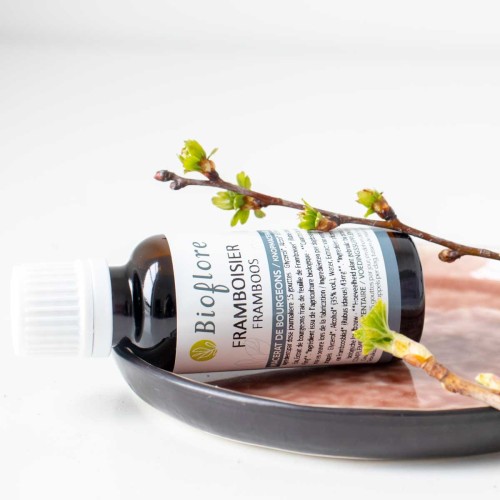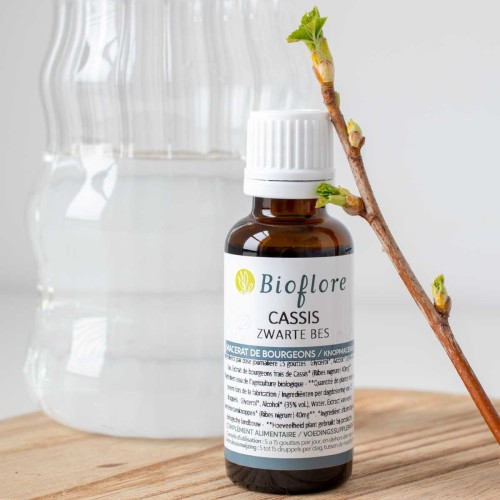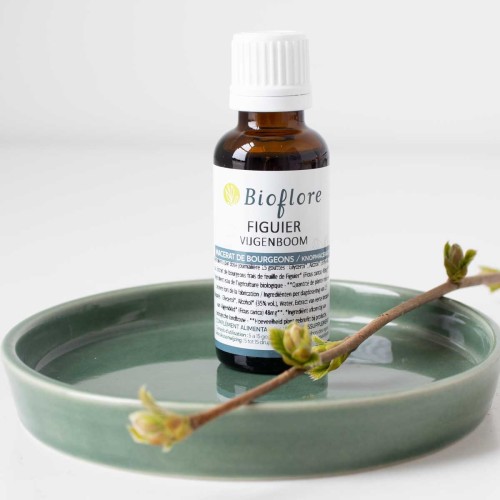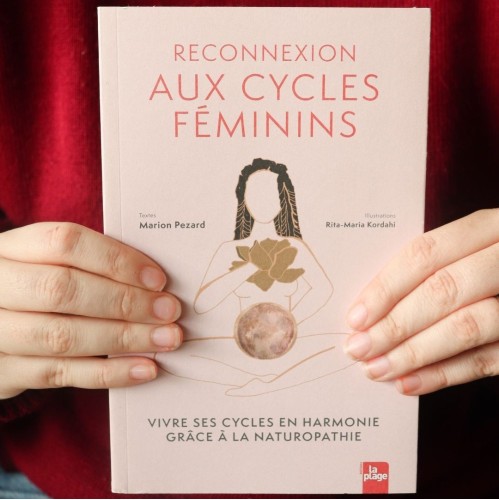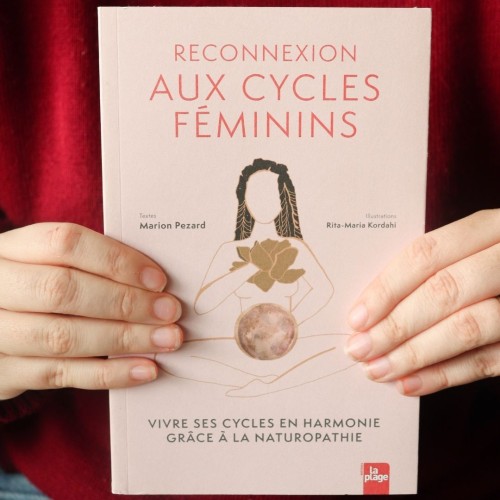Start your gemmotherapy with 3 versatile bud macerates: Blackcurrant, Raspberry and Fig.
For several weeks now, we've been covering the subject of gemmotherapy, its benefits and its uses for different problems.
Today I'd like to focus on three bud macerates which I think are quite versatile, and are the ones I use and recommend most to the people I work with in naturopathy and phytotherapy.
You'll find out about their benefits, their indications and the basic doses that you can have personalised by your natural health practitioner, in the hope that this will help you to take care of yourself in a natural way.
By Marion Pezzard, naturopath and creator of the podcast Healthy living
Fig tree bud macerate
I love using and recommending Fig Buds because, personally, their effects have never disappointed me.
For me, the main use is for stomach pains, acid reflux or heartburn. It acts as a soothing agent and provides rapid relief. I recommend taking it as a cure over several weeks to eradicate the problem but also to work on the initial cause of the problem: stress.
Fig buds, like most buds for that matter, have the particularity of acting on the problem as well as on its cause, which makes them real allies in a holistic approach to providing lasting relief.
In terms of digestive comfort, Fig Tree regulates gastric secretions, soothes the intestinal mucosa and, in turn, supports the intestinal sphere and good overall digestion.
When it comes to regulating the nervous system, Fig is mainly used in cases of external stress and overwork. If the stress is more a result of ruminations, coming more from the self, then Linden will be preferred. And Lime blossom works its magic not only on ruminations, but also on their consequences: sleep disorders!
Dosage: I generally recommend 10 drops in the morning and 10 drops in the evening before meals for adults.
Blackcurrant bud macerate
Blackcurrant is a fantastic plant with real regulatory functions, making it a benchmark in gemmotherapy.
Blackcurrant buds are used to support the immunity of adults and children alike. It's a good idea to take them as a preventive measure if you're used to getting sick regularly every winter, but also during illness, whether it's a cold, flu, etc.
Another highly appreciated function of Blackcurrant buds is its action on cortisol, the stress hormone. Blackcurrant supports the body's cortisol levels and can help preserve them during periods of great stress, to avoid depleting the reserves in the adrenal glands.
This use will also be beneficial for women suffering from luteal insufficiency, i.e. with a luteal phase (between ovulation and menstruation) of less than 12 days. This phase is dominated by progesterone, and during periods of stress, progesterone and cortisol compete with each other in the body. Excess cortisol will tend to reduce progesterone levels and therefore weaken the luteal phase. It is in these cases, among others, that we suffer from the famous premenstrual syndrome, as well as hypofertility.
Blackcurrant buds will be of great help in supporting cortisol and preserving progesterone.
Here too, we can consider that bud macerate acts on the cause of a problem: low immunity, insufficient luteal phase, as well as on the cause of this disorder: an excess of stress and cortisol.
Finally, it has a tonic and antioxidant effect that is highly appreciated when you are feeling very tired, during a winter illness for example, or at any other time.
Recommended dosage: 15 drops a day before breakfast in a glass of water for adults.
Raspberry bud macerate
This plant is the one I use the most, it seems, in my practice as a naturopath specialising in hormonal balance and fertility!
Perhaps you've heard of Raspberry leaf teas for balancing hormones, soothing menstrual cramps or supporting uterine contractions at the end of a pregnancy?
In its bud macerate form, Raspberry has a complementary role to that of herbal teas, targeting the ovaries all the more and stimulating them to achieve quality ovulation and a good oestrogen-progestogen balance throughout the menstrual cycle.
This macerate can also be useful during the menopause to continue supporting ovarian function as much as possible.
"A real ally for women of all ages!"
Dosage: here again, I recommend 10 drops morning and evening in a glass of water before meals, either throughout the menstrual cycle, or during the 1st part of the cycle only, i.e. from the 1st day of menstruation to ovulation, depending on the desired effect.
So, are you familiar with these three gemmotherapy plants?
Do they seem to meet your needs?
All dosages are given here as a guide, for a healthy adult, and can of course be adjusted by a natural health professional to suit your needs.



